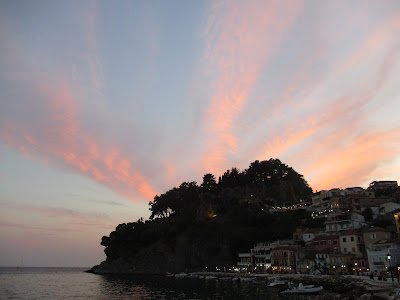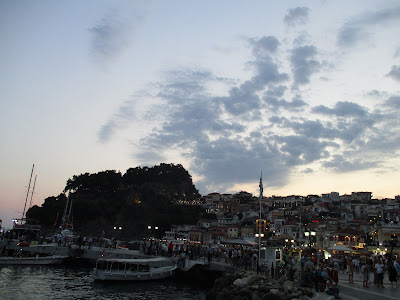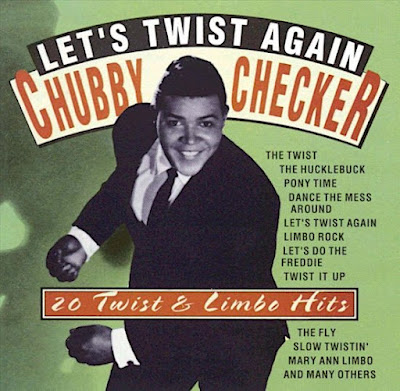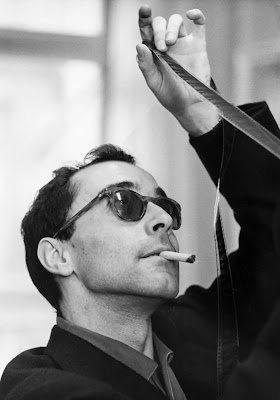is it the twister? Yeah’
I’m gonna tell my tale, and it won’t take long, we’re gonna do the Twist, and it goes like this. The Twist was the big Rock ‘n’ Roll era dance craze. Everyone was twisting. Jackie Kennedy was twisting in the White House, and even used Air Force One to fetch a Chubby Checker record she’d left in Palm Beach. ‘The Daily Mirror’ provided a helpful guide on how to do the Twist, suggesting that you move your feet as though you’re stubbing out two cigarettes, while moving your upper body as though you’re towelling your back. The Twist was the first dance craze where a partner was not a necessary adjunct. You could dance it with a partner if you wanted to, but that was by no means a prerequisite. And that defined its importance as a cultural fire-break.
Dance was always there. It always has been. Dance has a primal ritualistic element written into the human DNA. Toddlers grin and move to syncopated music in a rhythmic way before they can even talk. Every culture in every age dances. In that between-the-wars period Flappers doing the Charleston had enlivened the world’s bleakness. Just as the early Rock Hops had danced the jive. The Twist was different. You could dance it on the spot. You didn’t need a big dancehall, it was designed for a new culture of small clubs and discotheques. Sam Cooke was “Twisting The Night Away”. When they spun “Rock-A-Hula Baby” off the soundtrack of the Elvis Presley ‘Blue Hawaii’ movie as a chart-topping single, they tacked (Twist Special) onto the title as a trend precaution. And – lest we forget, the Beatles scored massively with their late cover of the Isley Brothers’ “Twist And Shout”. There have been other massive dance crazes. The Macarena in 1995, danced by Al Gore at the Democratic Convention, Gangnam Style from South Korean Rapper Psy in 2012, through to The Floss – which also has the advantage of a kid’s code that was indecipherable to adults!

But Chubby Checker was the undisputed King Of Twist. Born Ernest Evans, 3 October 1941 in Spring Gully, South Carolina, the oldest of three brothers, he was raised in the Philadelphia projects. He was working after-hours from South Philadelphia High School at the Ninth Street chicken-market when boss Henry Colt heard him singing as he worked. Impressed, he contacted Kal Mann – a staff-writer with local Cameo-Parkway records, who introduced him to label-boss Bernie Lowe who promptly signed Ernest to a long-term contract in 1959. Ernest then became ‘Chubby Checker’ – an alias coined by DJ Dick Clark’s wife who happened to be visiting the studio and claimed that he resembled a young Fats Domino (Fats=Chubby, Domino=Checkers) and his first record “The Class” – written for him by Kal Mann, was modestly successful (no.38). But it was his fourth disc that would change the course of Pop history.
“The Twist” had been the b-side of the Hank Ballard & The Midnighters hit “Teardrops On Your Letter” in 1959, as a routine devised to match the group’s onstage dance-steps. The Midnighters had been scoring hits with the slightly risqué ‘Annie’ songs – “Work With Me, Annie”, “Annie Had A Baby” and “Annie’s Aunt Fanny” all on King Records’ Federal subsidiary, with their ensuing fallow patch switched around by an elevation to King itself, and with Hank getting separate headline billing. According to Pop mythology Dick Clark – of the ‘American Bandstand’ TV-show, phoned Chubby in as a last-minute replacement when Ballard failed to show for rehearsals. He quickly cut his own lighter more commercialised version of the song in order to lip-synch to it.

It was never meant to be a record to sit down and listen to. It was a record to forget sleazy political scandal and the Cold War superpower chill, and just party to. Spinning at 45rpm it was a call to toe-tapping terpsichorean action, no two ways about it, ‘come on and twist, Yeah Baby Twist, Ooh Yeah, just like this, come on Little Miss, and do the Twist!’. The original Rock ‘n’ Roll eruption had faded, there was a lull in Pop music. Chubby was an engaging performer, permanently illuminated by a big contagious grin, and his “The Twist” became an American no.1 hit – twice, for a solitary 19 September 1960 week – dethroning Elvis Presley’s “It’s Now Or Never”, then for two weeks from 13 January 1962 – subsequently knocked off the top spot by “Peppermint Twist” by Joey Dee & The Starliters. It’s been suggested that this double hit-status was due to its initial teen-fad notoriety, then – after national exposure on the ‘Ed Sullivan Show’, it was taken up by the older parent-generation too, assimilated as a chic and amusing novelty for sophisticated suburban parties where adults could vie with each other over their dance proficiency. Whatever, it sold three-million copies, spent thirty-eight weeks on the chart, and unleashed the global dance-craze. Its success even prompting King to repromote the Hank Ballard original, which also sold a million!
Oddly, British audiences were initially unmoved by the Twist fad. During its first release the single made two grudging chart appearances, the highest at no.44. In fact it would have to wait until June 1988 when Chubby teamed up with the Fat Boys on their Rap remix “The Twist (Yo, Twist)” which finally took the song up to no.2! He guested on their fun video too. But meanwhile, when Chubby sings ‘come on, let’s Twist again, like we did last summer’ – we hadn’t actually been Twisting last summer at all. Instead, the Twist caught fire here with “Let’s Twist Again”. Chubby introduced the follow-up with an appearance on the ABC-TV Pop Show ‘Thank Your Lucky Stars’ (30 December) alongside Helen Shapiro and Billy Fury, after which it entered the ‘NME’ chart at no.15 (6 January 1962) before busting him up to no.2 by 27 January, below Cliff Richard’s “The Young Ones” which it eventually replaced at no.1 for two weeks from 24 February. Over on the ‘Record Mirror’ (‘Record Retailer’) chart the record stalled at no.2 and got no higher, compensated for when a reissue of “The Twist” followed it up to no.14 (1 February 1962). But the Brits swiftly made up for lost time. Once he’d made that breakthrough, more UK hits followed. ‘The Twist was bidding fair to become the biggest dance sensation since the Charleston’ observed a staid Christopher Booker (in ‘The Neophiliacs’, Collins, 1969). “Slow Twistin’” climbed to no.23 (April 1962), “Teach Me To Twist” (no.45, April 1962), and “Dancin’ Party” (no.19, August 1962). A reissue combining “Let’s Twist Again” c/w “The Twist” returned Chubby to no.5 as late as November 1975.

But The Twist was more than just that. It became a global phenomenon! It blossomed into an overnight craze in France to rival the hula-hoop, and since – at that time, Paris fashionistas led the world, if they considered the Twist fashionable, it was by default fashionable. It became obligatory to add ‘twist’ to the song-title for a record to even secure release, whether it was a Twist or not. “Ya Ya” had been a 1961 American hit for Lee Dorsey, retitled “Ya Ya Twist” it was simultaneously a French hit for both Johnny Hallyday and Petula Clark, with Petula’s version crossing-over into the UK Top Twenty, at no.14. Where the most unlikely opportunists began recording cash-in Twist numbers. Jess Conrad adapted the traditional French ‘Frere Jacques Dormez Vous’ into “Twist My Wrist” – ‘twist with me, my Cherie, let’s embarrass all of Paris, when you twist with your charm, you don’t have to twist my arm,’ which didn’t chart, but secured a prominent place on the ‘Thank Your Lucky Stars Volume 1’ TV-show spin-off album. Lord Rockingham’s XI – formerly house-band for Jack Good’s ‘Oh Boy!’ TV-show, reformed to do a cludgy “Rockingham Twist” and “Newcastle Twist”.
Sax-player Dave Ede & The Rabin Band, host of BBC Light Programme’s ‘Go Man Go’ radio Pop show attempted a kind of Twist-Trad fusion with “Twistin’ The Trad”, then adapted ‘Three Blind Mice’ with just a nod at Hanna-Barbera cartoons into “Twistin’ Those Meeces To Pieces”. Veteran Music-Hall hoofer Frankie Vaughan hopped the bandwagon by grabbing a taste of the chart with “Don’t Stop, Twist”, a no.22 in February 1962, and even Frank Sinatra was hauled in for a tedious “Everybody’s Twistin’” which also got as high as no.22 that same April.
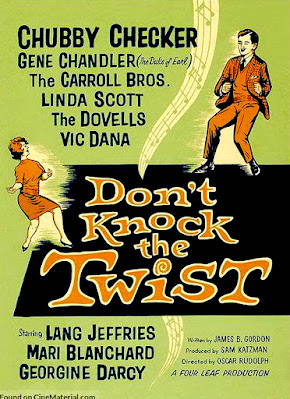
‘The Twist was like the Atom Bomb in the music business’ Chubby enthused, ‘its energy is timeless.’ But although his records impinged on the American R&B chart, he was never seen as a heavy serious artist in the way that other R&B artists are considered. He was more a fun addition to the scene, an entertaining adornment. Yet a young Thom Bell, later one of the producer architects of seventies Philli-Soul, did arrangements and played piano on Checker sessions. While music academic Richard Williams wrote ‘Chubby’s best records had a tight precision and a chunky beat which made them ideal for dancers’ (‘Melody Masker’, 13 January 1973). A talented drummer and piano-payer in his own right, Chubby went on to capitalise as ‘King Of Twist’ by recording more dance songs – Don Covay’s “Pony Time” (American no.1, 30 January 1961), “Limbo Rock” (US no.2, 29 September 1962), “Let’s Twist Again” (no.8, 3 July 1961), the “Slow Twisting” duet with Dee Dee Sharp (no.3, 10 March 1962), “The Fly” (no.7, 2 October 1961), and more – over the next six years, most of his releases achieved chart status if few created enduring musical landmarks.
While there were other pretenders to his dance-king status. The Goffin-King team wrote “The Locomotion” – a US no.1 (25 August 1962) for Little Eva who Pop mythology insists was the songwriting duo’s babysitter. Chubby wasn’t impressed, during a London TV interview he derisively described it as ‘Man, that’s not a dance, it’s just a hit record’, although she followed it into the charts with “Let’s Turkey Trot” – ‘gobble-gobble-doodly,’ and more. While Dance crazes proliferated, all based around the no-partner Twist blueprint, the Mashed Potato, the Hitch-Hike, the Monkey, the Frug, the Jerk, and the Watusi, all with their attendant wannabe hit singles. ‘If I told people that dancing as we know it today is my own invention, they wouldn’t want to talk to me’ he protested, ‘but dancing as we know it today started in 1960. The Twist is the invention of dancing apart. No-one’s touched since.’
His success led Chubby further, into movie cameo roles in ‘Twist Around The Clock’ (1961) – a partial reconfiguring of the 1956 exploitational ‘Rock Around The Clock’, with Dion and the Marcels. Then ‘Don’t Knock The Twist’ (1962) – a remake of the 1956 ‘Don’t Knock The Rock’, with Chubby, Gene Chandler, Len Barry and the Dovells. He guested in Richard Lester’s debut movie for Amicus, ‘It’s Trad, Dad!’ (1962) – ‘The Kings Of Dixieland Jazz Together With The World’s Top Recording Stars’ with Helen Shapiro and Craig Douglas, and much later in the concert-movie ‘Let The Good Times Roll’ (1973) – ‘A Movie That Makes You Feel Good!’ But to Rock historians Phil Hardy & Dave Laing, Chubby’s subsequent records were ‘largely nasal tenor chants accompanied by somewhat tuneless vocal choruses and stereotyped rhythm/saxophone band-tracks’ (‘The Encyclopedia Of Rock: Volume 1’, Granada Publishing 1976). Yet, although Chubby delivered no less than thirty-one chart entries up to Parkway’s 1968 demise, he regularly featured on TV and in movies to demonstrate his dance moves.
There were new fads, fancies and fashions. Rock got harder, heavier and less enamoured of The Twist. Chubby married former ‘Miss World’ Catharina Lodders – dedicating his single “Loddy Lo” to her. He made a brief comeback on Buddah in 1969, with his version of the Beatles “Back In The USSA”, was arrested and charged for possession of hashish and marijuana in June 1970, then made a disastrous foray into reggae and progressive sounds on Chalmac in 1971 with a ‘Chequered!’ psychedelic album which was not critically well-received. ‘It’s mostly filled with would-be portentious and highly derivative lines like ‘goodbye Victoria, everybody’s going to the Moon’ or ‘stoned in the bathroom, on a Sunday afternoon’’ complained ‘Melody Maker, ‘the first song “How Does It Feel’ is unpromising, sounding suspiciously like “Like A Rolling Stone”.’
But whatever other talents Chubby may or may not have had, his career had been effectively hijacked by The Twist. And while he eventually settled into a comfortable niche on Rock ‘n’ Roll Revival shows, his legacy persisted. He was namechecked on Billy Joel’s 1989 hit “We Didn’t Start The Fire” – ‘Chubby Checker, Psycho, Belgians in the Congo’ as one of the highlights of the previous forty years of political history, and he guested on the TV ‘Dame Edna Experience’ (Season 2 Episode 1, 4 November 1989). ‘I’m like Donald Duck or Mickey Mouse’ he told a contemporary ‘Radio Times’, ‘a household name who sooner or later everyone gets to see’ (4-10 November 1989). His two Twist hits were extensively sampled on both 1989 no.1 hits by Jive Bunny & The Mixmasters, who remembered those days when ‘things were really humming.’
‘No-one really knows about Chubby Checker’ he divulged to journalist Sue Russell, ‘the difference between Chubby Checker in 1960 and in 1989 is the difference between a 1960 and a 1989 Rolls Royce. I’m the same guy – but I’m a little different.’
So, I’ve told my tale, and it didn’t take long. All about ‘The Twist’. And it goes like THIS!!!!!!
THE TWISTING TIMES...
June 1959 – ‘The Class’ b/w ‘Schooldays, Oh Schooldays’ (Parkway 804), US no.38
1959 – ‘Whole Lotta Laughin’’ b/w ‘Samson And Delilah’
1959 – ‘Dancing Dinosaur’ b/w ‘Those Private Eyes’ (Parkway 810)
August 1960 – ‘The Twist’ b/w ‘Toot’ (Parkway 811), US no.1, UK Columbia DB4503 no.44
October 1960 – ‘The Hucklebuck’ b/w ‘Whole Lotta Shakin’ Goin’ On’ (Parkway 813), both sides chart, no.14 & no.42. A revival of a late-forties dance tune, later a 1964 hit for the Irish Royal Showband.
January 1961 – ‘Pony Time’ b/w ‘Oh, Susannah’ (Parkway 818), Pop chart no.1, no.9, R&B chart, UK Columbia DB4591, no.27. ‘Pony Time’ was a Don Covay rewrite of a classic pre-war piano-boogie record by Pinetop Smith, ‘Pinetop’s Boogie-Woogie’
May 1961 – ‘Dance The Mess Around’ b/w ‘Good, Good Lovin’ (Parkway 822), both sides chart, no.24 & no.43
July 1961 – ‘Let’s Twist Again’ b/w ‘Everything’s Gonna Be All Right’ (Parkway 824), US no.8, UK Columbia DB4691, no.2
October 1961 – ‘The Fly’ b/w ‘That’s The Way It Goes’ (Parkway 830), US no.7
1961 – ‘Jingle Bell Rock’ b/w ‘Jingle Bell Rock Imitations’ with Bobby Rydell (Parkway 205), US no.21, UK Cameo-Parkway C205, no.40
1962 – ‘Twistin’ USA’ b/w ‘The Twist’ (reissue Parkway 811) ‘They shimmy in Charlotte, they shake in Baltimore, in Detroit and Dallas, and down Miami shore, so, baby, oh, baby, what are we waiting for?’
March 1962 – ‘Slow Twistin’’ b/w ‘La Paloma Twist’ with Dee Dee Sharp (Parkway 835), US no.3, UK Columbia DB4808 with alternate b-side ‘The Lose-Your-Inhibitions Twist’, no.23
March 1962 – EP ‘King Of Twist’ (UK Columbia SEG8155) with ‘The Twist’, ‘Mr Twister’, ‘Let’s Twist Again’, ‘Twist Train’
1962 – ‘La Paloma Twist’
1962 – ‘Teach Me To Twist’ b/w ‘Swingin’ Together’ with Bobby Rydell. UK Columbia DB4802, no.45
July 1962 – ‘Dancin’ Party’ b/w ‘Gotta Get Myself Together’ (Parkway 842), US no.12, UK Columbia DB4876, no.19
September 1962 – ‘Limbo Rock’ b/w ‘Popeye The Hitchhiker’ (Parkway 849), both sides chart no.2 & no.10. UK Cameo-Parkway P849, no.32, written initially as a Champs’ instrumental by Kal Mann with Billy Strange
February 1963 – ‘Let’s Limbo Some More’ c/w ‘Twenty Miles’ (Parkway 862), both sides chart no.20 & no.15
June
1963 – ‘Birdland’ (Parkway 873), US no.12
August 1963 – ‘Twist It Up’ (Parkway 879), US no.25
October 1963 – ‘What Do Ya Say’ b/w ‘Something To Shout About’, UK release only Cameo-Parkway P806, no.37
1963 – EP ‘Chubby Checker & Bobby Rydell In London’ (Cameo-Parkway CPE554) with Chubby’s ‘What Do Ya Say’ and ‘Something To Shout About’ plus two by Rydell
November 1963 – ‘Loddy Lo’ b/w ‘Hooka Tooka’ (Parkway 890), both sides chart no.12 & no.17
April 1964 – ‘Hey, Bobba Needle’ (Parkway 907), US no.23
July 1964 – ‘Lazy Elsie Molly’ (Parkway 920), US no.40
May 1965 – ‘Let’s Do The Freddie’ (Parkway 949), US no.40. A new dance-craze based around the Freddie & The Dreamers stage cavorting!
1965 – ‘Everything’s Wrong’ c/w ‘Cu Ma La Be-Stay’ (Cameo-Parkway P959)
July 1966 – ‘Hey You Little Boogaloo’ b/w ‘Pussy Cat’ (UK Sept, Cameo-Parkway P989)
December 1966 – ‘Karate Monkey’ c/w ‘Her Heart’ (US Parkway)
May 1969 – ‘Back In The USSR’ b/w ‘Windy Cream’ (Buddah 201-045)
September 1971 – LP ‘Chequered’ (London sSHZ8419) with ‘How Does It Feel’, ‘Stoned In The Bathroom’, ‘No Need To Get So Heavy’, ‘Let’s Go Down’, ‘My Mind’, ‘Goodbye Victoria’, ‘Love Tunnel’, ‘Slow Lovin’, ‘He Died’, ‘If The Sun Stopped Shining’. Melody Maker says ‘the effect isn’t improved by the sub-Hendrix heavy accompaniment and a muddy mix which almost buries the vocals.’
October 1973 – movie soundtrack LP ‘Let The Good Times Roll’ (Bell) includes ‘The Twist’, ‘Pony Time’ and ‘Let’s Twist Again’
November 1975 – ‘Let’s Twist Again’ b/w ‘The Twist’ UK London American HL10512, no.5
January 1976 – LP ‘The American Dream: The Cameo-Parkway Story 1957-1962’ (London Records Dream-U 3/4) double-vinyl includes ‘The Class’, ‘The Twist’, ‘Pony Time’, ‘Let’s Twist Again’, ‘Dancin’ Party’ and ‘Limbo Rock’ alongside tracks by Dee Dee Sharp (‘Mashed Potato Time’), Don Covay, Bobby Rydell, the Orlons (‘Don’t Hang Up’) and the Dovells (‘Bristol Stomp’)
March 1976 – LP ‘Chubby Checker: Greatest Hits’ (London Records HAU8492), ‘Melody Maker’ said ‘a fine reminder of how catchy American punk Pop was’ although ‘the strain of constantly coming up with new dances was showing and the result was the feeble “Do The Freddie” and “At The Discoteque”.’
April 1976 – ‘Dance Party’ b/w ‘Limbo Rock’ (London American HLU 10524)
December 1976 – ‘The Rub’ b/w ‘Move It’
June 1988 – ‘The Twist (Yo, Twist)’ The Fat Boys with Chubby Checker (Urban URB20), UK no.2
May 1990 – movie soundtrack LP for Roseanne Barr- Meryl Streep ‘She-Devil’ (Mercury), includes ‘Party Up’ by Chubby Checker featuring the Fat Boys


